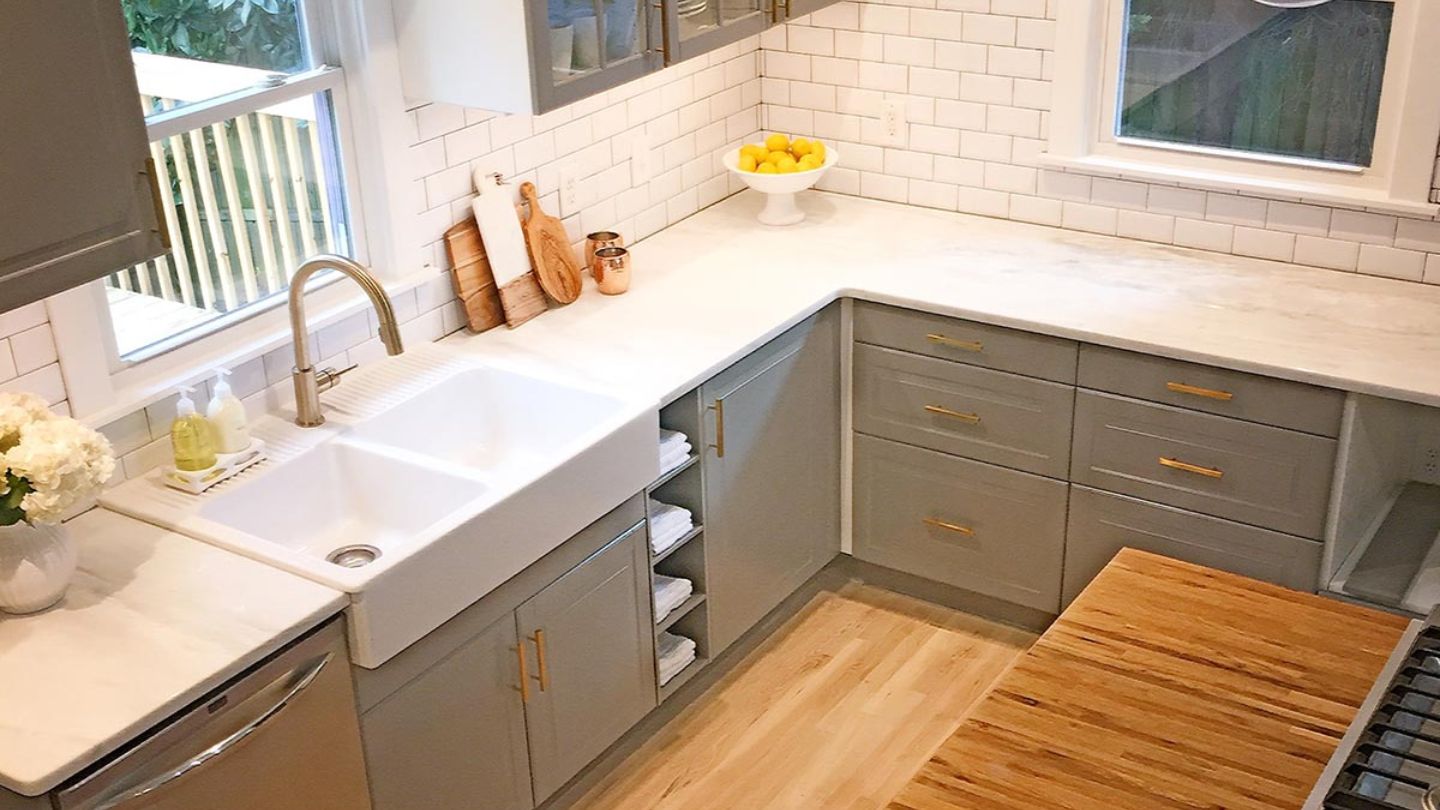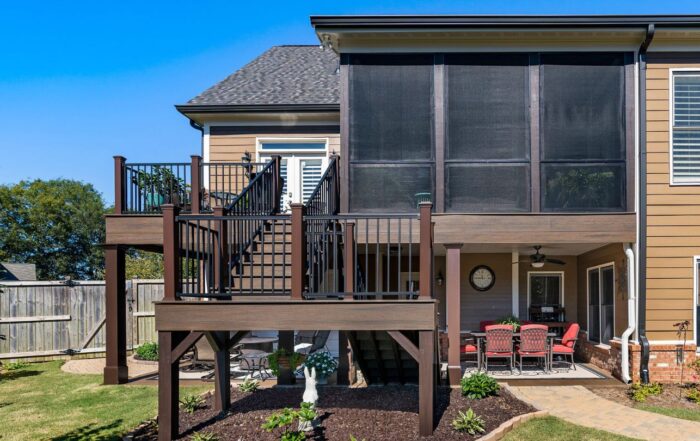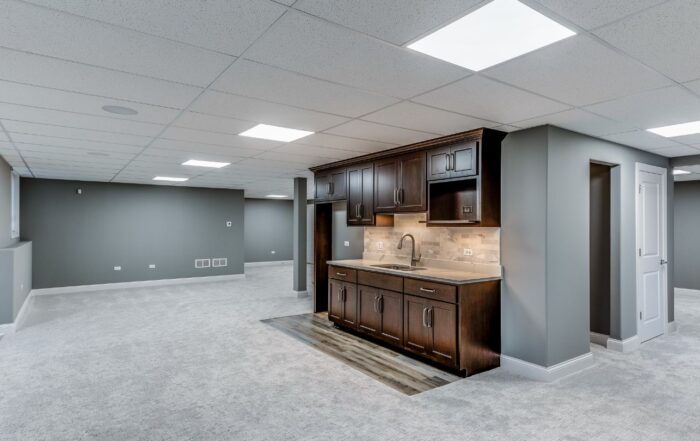How to Find a Home Remodel Contractor
Home
Blog
- How to Find a Home Remodel Contractor
Want to remodel your home? Learn how to find a home remodel contractor who can make your home renovation project happen. This covers it all, from planning to hiring.
Key Takeaways
- Know your home remodeling needs and have a budget in place to effectively communicate with contractors about the project cost.
- Collect and review contractor qualifications, licenses, and insurance to make sure they meet safety and legal requirements.
- Compare bids and understand contract terms, payment schedules, and scope of work so your remodel goes smoothly.
Know Your Home Remodeling Needs
Every successful remodel starts with a solid plan. Begin by outlining an exhaustive scope of work that covers all your needs and wants for the project. This first step is transparent and sets the stage for good communication with contractors. Identify the must-haves of your project and nice-to-haves that will enhance the end result.
Having a realistic budget in line with your goals is crucial—make sure to communicate this to any contractor you’re considering so there’s no confusion later. A firm cost estimate helps both parties agree on service expectations within the budget. Setting a timeline is key to managing expectations and keeping to the agreed-upon schedule.
Homeowners remodel for many reasons: to have more space or to improve their home. Whether you’re looking to add rooms, renovate your kitchen, or do a whole home remodel, having a clear vision will be your guide when talking to contractors.
Choosing the right contractor is key. They’ll turn your conceptual vision into reality through your home improvement project. Selecting qualified home remodeling contractors ensures that your renovation is handled by experts who can transform your space while adhering to safety and budget constraints.
Determine the Scope of Your Project
Determining the scope of your project is crucial in finding the right contractor for your home remodeling needs. Start by making a detailed list of the specific tasks and services you require. Consider the size and complexity of the project, as well as any specific materials or features you want to include. For instance, are you looking to remodel just the kitchen, or do you have a whole home renovation in mind? Do you need custom cabinetry, high-end finishes, or eco-friendly materials? Having a clear understanding of your project’s scope will help you find a contractor who specializes in the type of work you need. This clarity will also make it easier to communicate your vision and expectations, ensuring that the contractor can deliver the results you desire.
Identify the Services You Need
Once you have determined the scope of your project, identify the specific services you need from a contractor. Do you need a general contractor who can handle all aspects of the project, or do you need a specialized contractor who can focus on a specific area, such as electrical or plumbing work? A general contractor can oversee the entire project, coordinating various trades and ensuring that everything runs smoothly. On the other hand, specialized contractors bring expertise in specific areas, which can be crucial for complex tasks. Make a list of the services you need, and use this list to find contractors who offer those services. This targeted approach will help you find professionals who are well-equipped to handle your home remodeling project.
Consider Your Budget and Timeline
Before hiring a contractor, it’s essential to consider your budget and timeline. Determine how much you are willing to spend on the project and create a realistic timeline for completion. Be sure to also consider any potential delays or setbacks that may arise during the project. For example, unexpected issues like hidden structural problems or delays in material delivery can impact both your budget and timeline. Having a clear understanding of your budget and timeline will help you find a contractor who can work within your means and meet your deadlines. Discuss these factors with potential contractors to ensure they can accommodate your financial and scheduling needs, and be prepared to adjust your plans if necessary to stay on track.
How to Find a Home Remodel Contractor
When looking for a good remodeling contractor, prioritize reviews, quality, insurance, certification, and experience. Use trusted platforms with reviews, get referrals from recent remodeling projects, and note signs of active contractors in your area. Gather quotes to assess pricing and communication styles, helping you choose the best fit to bring your vision to life.
Ask for Referrals from Friends, Family, or Neighbors
One of the best ways to find a reliable contractor is to ask for referrals from friends, family, or neighbors who have recently completed a similar project. Personal recommendations can provide valuable insights into a contractor’s reputation, work quality, and reliability. Ask about their experience with the contractor, including the quality of work, communication, and overall satisfaction. Were they happy with the final results? Did the contractor stay on schedule and within budget? Referrals can provide a level of trust and confidence that online reviews alone may not offer. By leveraging the experiences of those you trust, you can find a reliable contractor who has a proven track record of success.
Check Online Reviews and Ratings
In addition to asking for referrals, check online reviews and ratings from reputable sources. These platforms offer a wealth of information about contractors, including customer reviews, ratings, and any complaints or issues. Look for contractors with high ratings and positive reviews, and pay attention to any red flags or complaints. Consistent positive feedback can indicate a contractor’s reliability and quality of work, while recurring issues in reviews may signal potential problems. Online reviews can provide a comprehensive view of a contractor’s reputation and work quality, helping you make an informed decision when selecting a home remodeling contractor.
Contractor Qualifications
When narrowing down your list of remodeling contractors, make sure to check their credentials. Is the contractor you’re considering for your home remodel licensed? A licensed general contractor follows local building codes and safety regulations, which means they’re professional. Licensing also includes liability insurance and worker’s compensation, which protects both parties in case of issues with the contractors involved.
Review the contractor’s insurance coverage. Ask them about their policies so you can understand what they’re responsible for if accidents or damage occurs on your property during the remodel. They should carry enough insurance to cover risks during the duration of your project. Continuous renewal of licenses and insurance means they’re committed to operating within the law and safety.
By reviewing each candidate’s qualifications, you’re not only checking for safety and legal requirements but also getting a reliable contractor who is committed to service excellence—a commitment shown when they easily provide all the necessary documents to prove their competence and trustworthiness so you can feel confident as you move forward to hire a professional for your remodel. Additionally, ensure the contractor is responsible for obtaining building permits to avoid potential legal issues and ensure compliance with local codes.
Contractor’s References and Past Work
Before you settle with a reliable home contractor, make sure to check their past work and references. Ask for at least ten client testimonials so you can gauge the level of trustworthiness and quality you can expect from the contractor. Ask specific questions like punctuality, cleanliness during construction, and adherence to initial estimates using these references. The information you gather from these interactions will be crucial in determining if the contractor has a strong work ethic and reliability.
When talking to these references, have a list of questions ready so you can thoroughly evaluate every important detail of their experience with the contractor. Due diligence on previous projects of a potential contracting partner is important when hiring for remodeling because it backs up their claims of expertise and gives you a clearer picture of their capability and consistency. A careful selection process ensures whoever you choose can deliver on your project expectations.
Read more: Essential Questions to Ask Before Hiring a Remodeling Contractor
Interviewing Potential Contractors to Find a Reliable Contractor
When you start a remodel, you need to thoroughly screen potential contractors. Knowing how to find a good contractor for remodeling is crucial. Ask how long they’ve been in business and their track record on past projects to evaluate their expertise. Have the contractor come to your home so they can see what you want and give you a quote. This visit is also important to determine if they have experience with projects like yours.
When choosing contractors, also make sure there’s good rapport, a good trust level, and good pricing. Ask how often you’ll get updates and who your main point of contact will be during the remodel. Clarity in communication is key to transparency and a smooth process during your project.
Don’t hesitate to ask about the professional affiliations of the contractor—these are indicators of industry standards—and ask how they will source materials, which will give you an idea of their fiscal responsibility and quality control.
The interview process should lead you to a contractor whose vision matches yours so you can have control over your entire remodel.
Contracts, Payment Terms, and Payment Schedule
To have clarity and understanding, a full contract must be written out that covers the terms of engagement and responsibilities. It should spell out the scope of work so you know what services the contractor will provide and reduce any confusion. Typically, a payment schedule is set up with an initial down payment and then incremental progress payments as work is completed and, finally, the final payment.
Make sure to include in this agreement a project timeline that outlines specific tasks and penalties for missed deadlines. Including these details will prevent misunderstandings and ensure all parties are on the same page for deliverables. A clear understanding of these contract terms is key to a smooth remodeling process.
Building Permits and Inspections
Make sure your contractor gets all the necessary permits and licenses. Building codes are mandatory and enforced through permit issuance by building departments to ensure safety and standards. Permit requirements vary from city to city, so make sure to check the regulations in your area before starting a project. Failure to get the required permits will result in penalties and delays until the project is in compliance.
During different stages of construction, an authorized inspector must inspect and verify compliance with safety and code requirements. Hiring unlicensed contractors will cause you problems in getting permits and increase liability.
Include a termination clause in your contract so you have protection against extended completion time or poor performance of the contractor. Getting valid permits and regular inspections will not only protect your investment but also compliance with laws and safety standards.
Communication Guidelines
Clear communication is the foundation of a successful remodel. Here are ways to ensure effective communication with your contractor:
- Establish a preferred method of communication: Whether it’s via email, phone calls, or text messages, make sure to establish a clear and consistent way to communicate with your contractor. This will prevent miscommunication and keep everyone on the same page.
- Set up regular check-ins: Schedule weekly or bi-weekly meetings with your contractor to discuss progress and any potential issues that may arise. This will allow for timely problem-solving and prevent delays in the project.
- Be specific about your expectations: Clearly communicate your expectations for the project, including budget, timeline, and quality standards. Make sure these are included in the contract as well.
- Keep records of all communications: It’s important to document all communication with your contractor, including emails, phone calls, and meetings. This will serve as evidence in case of any disputes or issues.
- Be open to suggestions: While you may have a clear vision for the project, it’s important to listen to your contractor’s suggestions and ideas. They are experts in their field and may have valuable insights that can improve the outcome of the project.
- Address any concerns promptly: If an issue arises during the project, address it as soon as possible. Ignoring problems can lead to bigger issues down the line and cause delays and extra expenses.
- Make payments on time: It’s important to stick to the payment schedule outlined in the contract and make payments on time. This will ensure a good working
Why choose Bradford Crafted?
With over 30 years of remodeling experience, Bradford Crafted is a top contractor that uses top-tier and high-quality materials so the final product meets high standards. They prioritize project timelines and customer expectations.
Bradford Crafted has a skilled team that’s great in every project they do. They customize projects to fit each client’s budget and have earned themselves as a reliable and trustworthy contractor.
Choosing Bradford Crafted means choosing a partner that values excellence, on-time project completion, and customer satisfaction.
Conclusion
Remodeling a home requires preparation, research, and due diligence. To ensure your project succeeds, you need to know your remodeling needs, research contractors, check their credentials and references, interview them, and compare bids while considering contracts and permits. Establish open communication with your chosen remodeling contractor in Milton to manage expectations and budget for the unexpected.
Ready to turn your house into your dream home? Bradford Crafted is a good choice for fulfilling those remodeling dreams. In addition to general home remodeling services, we also provide specialized services in the Milton area, including barns and stables construction for those with equestrian needs, composite decks for durable, low-maintenance outdoor spaces, and covered porches to enhance your home’s functionality and aesthetic. Start this journey by choosing a home renovations & additions contractor in Milton that values excellence in every aspect of your home improvement.
FAQs
Why check a contractor’s references and portfolio?
You should check a contractor’s references and portfolio to verify their reliability and workmanship. This step ensures you choose a professional who can deliver quality results and minimize risks associated with your home remodel.
What should be in a remodeling contract?
A remodeling contract should clearly outline the scope of work, payment schedule, and project timeline and include provisions for change orders and penalties for late completion. This ensures that all parties are aligned and helps prevent misunderstandings during the project.
Table of Contents
Recent Blogs
Top Qualities to Look For in A Composite Deck Contractor
Searching for a composite deck contractor? Knowing the essential qualities to prioritize when selecting a company is crucial to ensure [...]
4 Great Reasons You Should Renovate Your Basement Today
Thinking about renovating your basement? Here are four great reasons you should renovate your basement now. Turning an underutilized space [...]
Top Things to Consider When Building a Porch in Milton
Planning to build a porch in Milton? There are several important things to consider when building a porch in Milton, [...]








